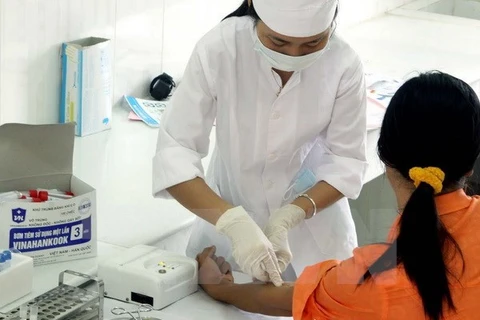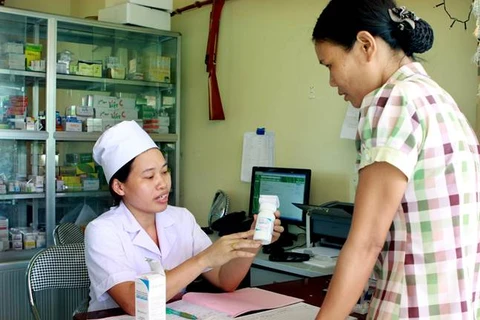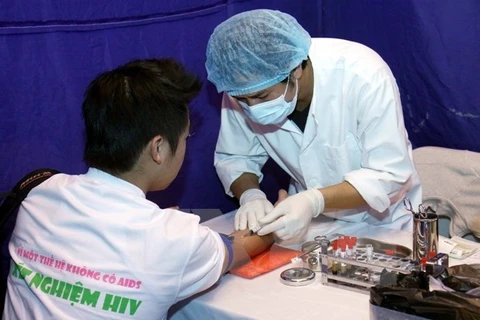Hanoi (VNA) – Deputy Prime Minister Vu Duc Dam called for joint efforts of people from all walks of life and political and social organisations in order to eliminate the HIV/AIDS epidemic by 2030 at the sixth symposium on HIV/AIDS prevention on November 24.
Organised by the Health Ministry, the two-day event focuses on the UN’s 90-90-90 Plan which aims at: 90 percent of people living with HIV will know their status, 90 percent of people who know their status are on regular antiretroviral (ARV) treatment and 90 percent of all people on treatment will have undetectable levels of HIV in their body (known as viral suppression) by 2020.
Dam shared participants that in 2014, Vietnam was the first Asian-Pacific country responding to the plan. This symposium is a practical activity in response to the plan as well as the national action month on HIV/AIDS prevention.
According to him, since 1990, approximately 230,000 Vietnamese people have been found living with HIV, of whom 85,000 were died of AIDS.
Fully aware of its dangers, Vietnam has carried out a lot of measures to roll back the epidemic. As such, this year is the eighth consecutive year the country sees decreases in the numbers of HIV-infected people, AIDS patients, and fatalities.
The two-day symposium attracts the participation of nearly 1,000 domestic and foreign delegates. Some 180 reports are expected to be delivered at the event.-VNA
























